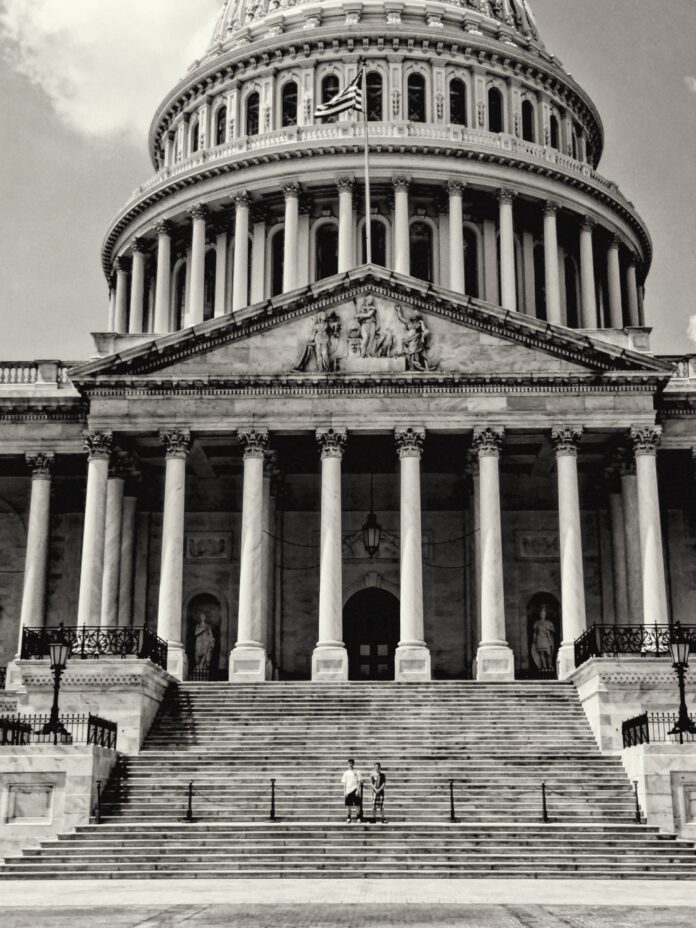
By Stacy M. Brown, NNPA Newswire Senior National Correspondent
Robert F. Kennedy Jr., a member of the illustrious Kennedy dynasty, is making an unlikely run for the Democratic presidential nomination and has declared that he is steadfastly committed to continuing his family’s enduring legacy.
In a one-on-one interview with the Black Press of America, Kennedy spoke about his relentless focus on combating environmental racism, ending qualified immunity for law enforcement officers, and addressing the alarming racial disparities within the American medical system.
The 69-year-old District of Columbia-born candidate said he’s championing causes that have plagued marginalized communities for far too long.
His mission, he insisted, extends beyond rhetoric, seeking to dismantle systemic barriers and usher in a brighter, more equitable future, particularly for African Americans who have borne the brunt of injustice, including the problematic issue of maternal mortality.
As he steps onto the political stage where his uncle, John F. Kennedy, counts as one of the most popular presidents in American history and where his father had all but sewn up the Democrat nomination before his assassination in 1968, Kennedy’s audacious bid could challenge the status quo and spark a transformative movement that reverberates through the nation.
“Black Americans are going to be a principal priority for me, particularly in ending that fear of dangerous interaction with law enforcement,” Kennedy asserted.
He also pledged a move to end qualified immunity, which protects police officers from personal liability in the event of a lawsuit.
“There is no incentive for individuals to change bad behavior,” Kennedy remarked.
“We need systemic changes. We need to remove qualified immunity, which would make it necessary for an individual to consider his liability with every interaction. Every good economic system [should] incentive good behavior and punish bad behavior. We need to have that.”
Kennedy added that there’s a need for a reorganization of police to understand the mission of protecting and serving “instead of being in combat mode when they come into the Black community.”
One of the children of the late Sen. Robert Kennedy, who was assassinated in 1968, Kennedy announced his presidential candidacy earlier this year.
His father and uncle, John F. Kennedy, both demonstrated a desire for a united and strong America, which he said inspired him.
Despite his anti-vaccine views that have caused controversy, some surveys have giving Kennedy as much as 20 percent support among Democrats.
His unlikely challenge to the incumbent President Joe Biden has gained steam.
A poll by The Economist and YouGov showed that Kennedy was viewed favorably by 49% of respondents and unfavorably by just 30%, leaving him with a net rating of 19 points—higher than any other candidate in the poll, which surveyed 1,500 adult respondents from June 10 to 13.
Further, Biden had a negative 9-point net favorability rating, with 52% of respondents viewing him somewhat or very unfavorably.
In comparison, 45% have very or somewhat favorable impressions, and Trump had a negative 10-point net rating, with 53% viewing him unfavorably and 43% favorably.
“Could Bobby Kennedy catch a spark? Maybe,” Michael Novogratz, a billionaire Democratic donor who supported Biden in 2020 but has pledged not to back any candidate older than 72, told the New York Times.
“He’s alienated himself because of some of the anti-vax positions, but he is a bright man, articulate, eloquent, connected, has the Kennedy name, and would pull a lot of the Trump voters.”
Meanwhile, Kennedy said he’d also work to end medical racism “entrenched in our medical system in this country.”
He noted a recent video he created about medical racism, where health experts have concluded that Black Americans are less likely to receive quality medical care than whites.
During the pandemic, Kennedy noted that African Americans were dying at 3.6 times the rate of whites.
Regardless of their income or social status, Black mothers suffered maternal mortality alarmingly higher than any other race.
“If you’re Black in this country, you’re getting third-world style medical care,” Kennedy insisted.
“The medical system is not attuned to taking care of Black patients. Being a Black patient in this country is almost as dangerous as being a Black prisoner. You won’t get good medical care, which will be one of my priorities.”
Kennedy also noted food deserts are plentiful and the quality of meals is “horrible” in most Black communities.
“Environmental issues plague Black America,” Kennedy stated. “Four out of every five toxic waste structures are in Black communities.
“The highest concentration of toxic waste is on the south side of Chicago and look at all the food deserts. And the food made available in many Black communities is highly processed and loaded with chemicals and hormones.
“It’s making African Americans sicker. We need children who have good health and healthy brains, and they need to be able to access the best medical care, but the system is predatory toward Black Americans.”


